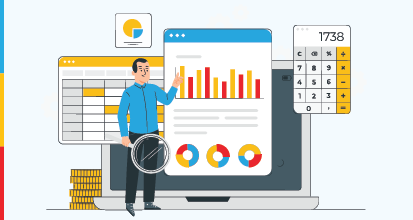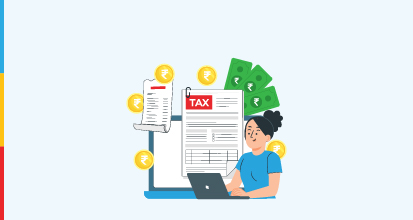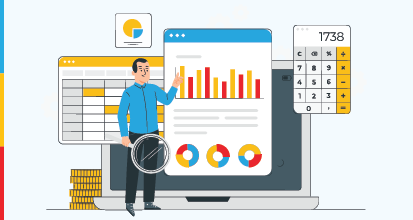2024-08-02
1071 Views
7 minutes read
Share
Section 80C offers a deduction of up to Rs. 1.5 lakhs from your taxable income every year. Thus, it is one of the most popular sections in the Income Tax Act, when it comes to saving taxes. However, it is far from being the only section you can save tax under.
Section 80C consists of mostly long-term investments and a few expenses, some of which are almost necessary. Thus, it should not be difficult for you to fulfil your 80C deduction limits, especially when you have a family to look after.
Following sections, investments, and expenses form part of the section 80C deduction limit of Rs. 1.5 lakhs:
| Investments | Section | Min. Holding Period |
| - Term Insurance Plans - Unit Linked Insurance Plans (ULIPs) - Guaranteed Savings & Income Plans (Life Insurance plans) - Public Provident Fund (PPF) - Employee Provident Fund (EPF) - Equity Linked Savings Scheme (ELSS) - Sukanya Sammriddhi Yojana - National Savings Certificate - Senior Citizen Saving Scheme - 5-Year Tax-Saving FD - Infrastructure Bonds issues by the National Bank for Agriculture and Rural Development (NABARD) | 80C | - Lock in period is 2 years as per sub-section (5) of section 80C - 5 years - 2 years - 15 years - NA - 3 years - Until daughter attains majority - 5 years - 5 years - 5 years - 5 years |
| - Pension / Annuity Plans for receiving regular income | 80CCC | - NA |
| - Contribution to National/New Pension Scheme (NPS) Tier-I account | 80CCD(1) | - NA |
An OTP has been sent to your mobile number

Sorry! No records Found
Thank you for your interest in our product. Our financial expert will connect with you shortly to help you choose the best plan.
You can also include some of the usual expenses to the list of eligible tax deductors:
With investments under Section 80C, an individual or a HUF can avail of tax exemption on their annual gross income.
The rebate on investments that lowers the payable tax amount of a person at the end of the financial year is known as a general tax deduction. This is one of the largest sections for reducing your income tax liability.
However, there are other useful sections as well:
In the past year, health insurance has newfound importance because of the pandemic. However, there was seldom a time when it wasn’t important. If you are looking at your comprehensive financial plan, you will notice health insurance as one of the first things on the execution list.
The premium you pay for Mediclaim or health insurance cover makes you eligible for tax exemption under Section 80D.
Section 80D allows you to claim a deduction in the following manner on the health insurance policies or medical expenses:
1. Claim Deduction on the policies for
2. Claim medical expenses for 60 years plus family members
The limits for both claims are as follows:
Please note that deduction of medical expenses is allowed only in case there is no health insurance in force and payment is for senior citizen. It can be for individual or his family or his parents.
Thus, you can claim a maximum of Rs. 1 lakh under this section if both you and your parents are senior citizens. However, for the most part, maximum eligibility would be Rs. 75,000.
You can claim medical expenses under this section only for senior citizen parents, or if you or your spouse are above 60.
Your basic contributions to the New Pension Scheme Tier-I account will fall under the Rs. 1.5 lakhs limits. However, section 80CCD(1B) extends your limits by another Rs. 50,000.
Dedication under Section 80CCD(1) and Section 80CCD(1B) is allowed when investment is made in pension scheme notified by the Central Government.
Section 80CCD(1B) is an extension to the section 80CCD(1). However, you can claim a deduction under this section whether you have invested money to claim deduction under section 80CCD(1) or not.
In other words, if you have exhausted your tax-saving limit under section 80C, you can invest up to Rs. 50,000 more in other schemes.
This additional investment will decrease your taxable income by up to Rs. 50,000 under section 80CCD(1B).
Starting the financial year 2020-21, the Union Budget has given two options for estimating your taxable income and income tax:
1. Old Regime: With four-tier tax slab rates and deductions
2. New Regime: With eight-tier tax slab rates and no deductions
If you have bought or constructed a new house property using a home loan, you should follow the old regime and avail of the deductions under Section 24(b).
Section 24(b) provides a deduction of interest on the home loan from your income from house property. A loan taken for the following purposes qualifies for the rebate under this section (with limits):
| If you are residing in the house property or it’s vacant | |
| Purchase of a ready to move residential property | Rs. 2 lakhs |
| Construction of a house (rebate starts after the construction is complete) | |
| • If construction is completed within five years | Rs. 2 lakhs |
| • If construction takes more than five years | Rs. 30,000 |
| Repair or renovation of a residential house | Rs. 30,000 |
| If the property is rented out | Entire Interest Amount |
The deduction is available in the following two ways:
Self-Occupied or Vacant House
When your house is vacant or self-occupied you do not have an income from the house property. In this case, the entire Section 24(b) rebate becomes a loss from the house property. You can adjust this loss against your salary or professional income.
Thus, in the case of a self-occupied property, the deduction can reduce your taxable income from Rs. 30,000 to Rs. 2 Lakhs.
Rented-Out House
In the case of rented-out property, the deduction can be higher, as the entire interest amount is allowed as a rebate. But, if the net loss from house property is more than Rs. 2 lakhs you can only adjust the loss up to Rs. 2 lakhs against other incomes.
You can carry forward the loss for up to the next eight financial years. But it has to be adjusted only against income from house property in the next eight financial years.
These provisions of the Income Tax Act, 1961 offer you the opportunity to save and earn money without worrying about taxation.
Disclaimer - This article is issued in the general public interest and meant for general information purposes only. The views expressed in this blog are solely those of the writer and do not necessarily reflect the official policy or position of Canara HSBC Life Insurance Company Limited or any affiliated entity. We make no representations or warranties of any kind, express or implied, about the completeness, accuracy, reliability, suitability, or availability with respect to the blog or the information, products, services, or related graphics contained in the blog for any purpose. Any reliance you place on such information is therefore strictly at your own risk. You should consult with a qualified professional regarding your specific circumstances before taking any action based on the content provided herein.
We bring you a collection of popular Canara HSBC life insurance plans. Forget the dusty brochures and endless offline visits! Dive into the features of our top-selling online insurance plans and buy the one that meets your goals and requirements. You and your wallet will be thankful in the future as we brighten up your financial future with these plans.








